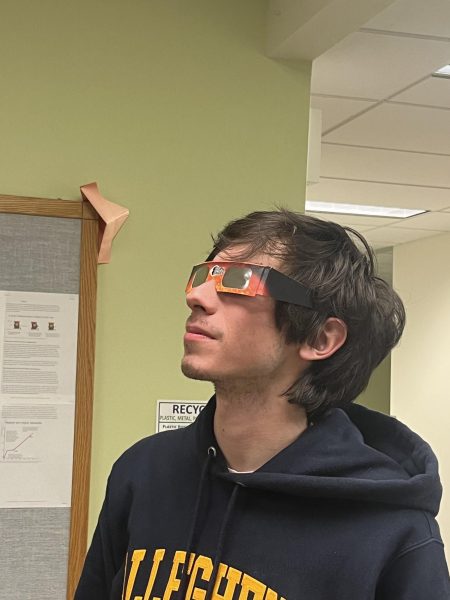Understanding the risk posed by COVID-19 variants
As the COVID-19 pandemic has progressed, there have been mutations to the virus which have caused variants of the disease, and scientists are racing to better understand these mutations and how they affect transmission, severity and vaccines.
According to the Centers for Disease Control, there are three variants of concern that are currently circulating around the globe. Overall, there are many different mutations that have occurred, but the ones that have garnered the most attention are B.1.1.7, B.1.351, and P.1.
The B1.1.7 wariant was first identified in the United Kingdom, the B.1.351 variant was first identified in South Africa, and P.1 was first identified in Brazil.
The B.1.1.7 variant is generally considered to have a higher rate of transmission, and potentially a higher risk of death. Despite this, scientists and experts believe that current vaccines will still be effective on this variant.
“Of concern is that there are about 50% increase in transmission with this particular variant that has been documented in the U.K. (B.1.1.7), and there’s likely an increase in severity of disease if infected with this variant,” said Dr. Anothony Fauci in a press briefing on March 20.
According to the CDC, this variant is the most common of the three of concern, with 6,390 known cases in the United States as of March 21, 2021.
“The way we can counter (B.1.1.7), which is a growing threat in our country, is to do two things: to get as many people vaccinated as quickly and as expeditiously as possible with the vaccine that we know works against this variant; and finally, to implement the public health measures that we talk about all the time,” Fauci said.
The B.1.351 variant is considered to have no effect on the severity of COVID-19, but there is concern about the effectiveness of vaccines. This concern is due to the mutations in the spike protein which may be more resistant to antibodies produced by current vaccines. Despite this, most experts believe that current vaccines are still effective against the three variants.
“Most of us (vaccine experts) believe that the existing vaccines are likely to work to some extent to reduce infection/transmission rates and severe disease against both the (B.1.1.7) and (B.1.351) variants,” said Dr. Julian W. Tang, a virologist at the University of Leicester, in an interview with the BBC.
According to the CDC, the B.1.351 variant is less common in the United States, with only 194 confirmed cases of March 21.
The P.1 variant is of concern because of its potential to reinfect those who have previously contracted COVID-19. This concern is rooted in what happened in Manaus, Brazil.
According to the New York Times, Manaus was hit hard at the beginning of the pandemic, with an estimated 75% of the population contracting COVID-19 by the middle of 2020. Scientists believed that this may have enabled Manaus to attain herd immunity. Then, in late December, there was another spike of cases.
Scientists began investigating what was going on. Through evaluation of the new cases it was found that P.1 was both transmitted between people easier, and had the ability to reinfect those who had the disease previously. Specifically, researchers found that out of 100 previously infected people between 26 and 61 of them could be re-infected if exposed to P.1.
Researchers and experts also caution that current vaccines will be helpful in fighting variants, even P.1.
A recent lab study demonstrated that the Pfizer/BioNTech vaccine was able to neutralize variants.
“Compared with neutralization of USA-WA1/2020, neutralization of B.1.1.7-spike and P.1-spike viruses was roughly equivalent, and neutralization of B.1.351-spike virus was robust but lower,” wrote the contributors to this study.
The USA-WA 1/2020 refers to the strain of COVID-19 identified at the beginning of community spread in the United States.
According to the CDC, the P.1 variant is currently very rare in the United States with 54 confirmed cases as of March 21.
There are also many other variants which have occurred throughout the world, but these three are the ones of most concern to public health organizations.
While the variants are of concern, there is encouraging news due to the distribution of vaccines in the United States. According to the CDC, 81.4 million people in the United States have gotten at least one dose, and 44.1 million people have been fully vaccinated. Nationally, on average, providers are giving 2.49 million doses per day.
Experts agree that mass vaccinations are the best method of addressing the rise of variants, and vaccine producers Pfizer, BioNTech and Moderna have recently begun to investigate the possibility of a third booster shot which may increase protections.
While this effort is still in clinical trials, it may be the next step in mitigating COVID-19.
“While we have not seen any evidence that the circulating variants result in a loss of protection provided by our vaccine, we are taking multiple steps to act decisively and be ready in case a strain becomes resistant to the protection afforded by the vaccine,” said Albert Bourla, chairman and Chief Executive Officer of Pfizer.






